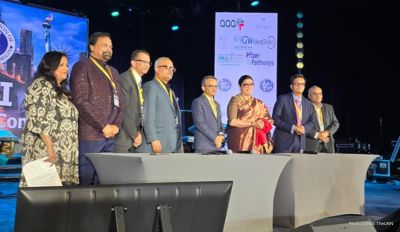Loneliness affects approximately one in four adults globally, with repercussions ranging from an increased risk of heart attacks to dementia and premature death. However, loneliness is not a new or rare phenomenon; rather, it is nearly universal. The key lies in how individuals respond to these feelings of isolation. Dr. Jeremy Nobel, a primary care physician and author of the recently published book Project UnLonely, emphasizes the importance of human connection in addressing loneliness.
“Just like thirst is a signal you need hydration, loneliness is a signal that you need human connection,” notes Dr. Nobel. His book, Project UnLonely, serves as a guide, advocating for creative expression as a means to communicate and establish connections. Vulnerability to loneliness can stem from various factors, including trauma, illness, or being part of a marginalized group. The prevalent American mindset of individualism and independence may also contribute to social disconnection.
The evolving societal norms over the past century have provided individuals with greater freedom to shape their own identities. While this presents opportunities, it also poses challenges, as determining one’s identity and sense of belonging can be disorienting. Dr. Nobel remarks, “It’s both a set of opportunities and a set of challenges.” The absence of a prescribed way to “belong” can make finding connections challenging, leading many to hesitate in expressing themselves or communicating openly.
Dr. Nobel, a poet himself, has experienced the healing power of creative expression firsthand. His early work with active-duty service members and veterans returning from Iraq and Afghanistan focused on using artistic expression and mindfulness activities to help them cope with post-traumatic stress. As a believer in the medicinal benefits of creative expression, he founded the Foundation for Art & Healing two decades ago.
Project UnLonely now collaborates with community-based organizations to develop evidence-based creative expression programs, spanning various forms such as music, painting, drawing, and culinary arts. Dr. Nobel emphasizes that the options are endless, including activities like knitting, crocheting, quilting, and even gardening.
Research supports the idea that engaging in art, or even appreciating the work of others, reduces stress hormone levels and increases feel-good hormones like dopamine, endorphins, and oxytocin. Dr. Nobel explains, “So what the arts do is they relax you and put you in a good mood,” creating an inviting atmosphere for connection.
Project UnLonely encourages individuals to take steps toward fostering connections:
1.Be Curious:Pay attention to your interests and motivations. Knowing yourself is the first step to bonding with others. Dr. Nobel suggests, “Connecting authentically with other people is best done if you have some kind of authentic connection with yourself.”
- Make Something:** Creative expression doesn’t require artistic prowess. Dr. Nobel recommends simple acts like doodling, dancing, cooking, or engaging in textile arts. Making something tangible becomes an artifact expressing your thoughts and feelings to others.
3.Take a Risk by Having Conversations:Share something about yourself, even if it’s not a deep secret. Taking a risk is the first step to authentic connection. Sharing something you’ve made, like a doodle or dance move, can act as a catalyst for more profound conversations.
- Find a Group that Matches Your Interests:Whether through volunteering or joining a group with shared interests, connecting with like-minded individuals is crucial. Dr. Nobel shares examples, such as an online group fascinated by brown bears in Alaska, which led to a unique connection during Fat Bear Week.
- Recognize Other People’s Loneliness:Loneliness can be a cycle, and reaching out to others experiencing loneliness is vital. Dr. Nobel advises, “If you see someone who’s experiencing loneliness, tolerate the risk of asking them how they’re doing.” Sharing your own experiences of loneliness can create a meaningful connection.
Project UnLonely and Dr. Jeremy Nobel advocate for the transformative power of creative expression in combating loneliness. By encouraging individuals to explore their interests, make tangible artifacts, take risks in conversations, join groups, and recognize others’ loneliness, the initiative aims to create a supportive and connected community, addressing the global issue of social isolation.











